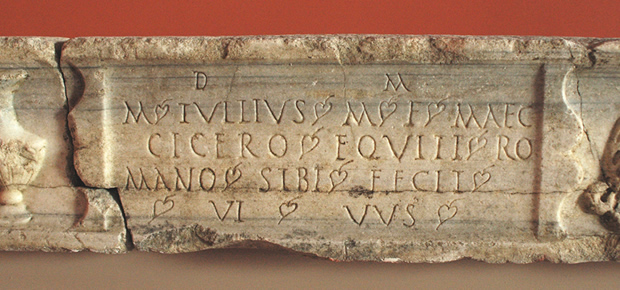
2.3 The philosophy
Nel I sec. a.C. Romans studied and deepened, particularly, two philosophical doctrines that had been established after Aristotle, who were predominantly focused on the moral and practical: Epicureanism and Stoicism. L’epicureismo – greek dating back to Epicurus (341-270 a.C.) -, serving as the sole foundation of knowledge sensible perception, was disclosed as a liberating religion by Titus Lucretius Carus (96-55 a.C.) in The nature of things. Stoicism, centered on an ideal of wisdom attainable by living according to nature, ie, with the detached and resigned acceptance of fate, was followed by numerous politicians, come Pompeo, Gross, Cato.
Another protagonist of political life in the last phase of the republic was Marcus Tullius Cicero (106-43 a.C.), Stoicism which drew to land eclecticism, openness to every school of thought that can contribute to the formation of man according to an ideal of balance, measure, decorum, wisdom (the’humanitas). Nel I sec. dell'impero, in the days of Claudius and Nero, Stoicism and Roman philosophy all reached their highest expression with Lucius Annaeus Seneca, preceptor, counselor and finally victim of Nero, that in the Epistles to Lucilius said some basic moral values, with rare boldness of thought in the ancient world (“You must live for another if you want to live for you”; “The man is a sacred thing for man”).




